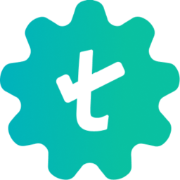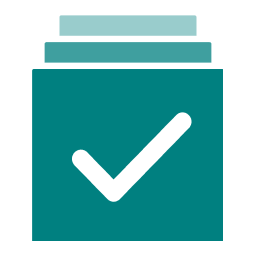Test Management by Testsigma
Alternatives
0 PH launches analyzed!

Test Management by Testsigma
Cursor for testers. Agentic testing for product and QA teams
454
Problem
Users currently rely on manual or fragmented tools for test management, leading to time-consuming test case generation, inefficient bug tracking, and delayed software releases.
Solution
A test management platform with AI agents that automates the testing lifecycle—generating test cases, executing tests, tracking progress, and creating bug reports—via AI-driven analysis and workflows.
Customers
QA engineers, product managers, and software developers in tech teams seeking AI-powered end-to-end test automation.
Unique Features
End-to-end AI agent integration for requirements analysis, test generation, execution, and reporting within a unified platform.
User Comments
Reduces manual effort in test creation
Accelerates test execution cycles
Simplifies bug reporting
Enhances collaboration for QA teams
Integrates seamlessly with CI/CD pipelines
Traction
Over 10,000 users, $500k+ ARR, and partnerships with 50+ enterprises as per ProductHunt data.
Market Size
The global test automation market is projected to reach $49.9 billion by 2026, driven by demand for AI-driven QA solutions (MarketsandMarkets).

Octomind QA Agent
You build. Our QA agent tests.
489
Problem
Users face the challenge of manual QA testing processes, resulting in time-consuming and error-prone app testing.
Solution
A QA tool that leverages agents to autonomously create and run test cases for applications, streamlining the testing process.
The tool allows users to focus on app development while the QA agent automatically generates test cases and checks for bugs.
Customers
Software developers, app development teams, QA testers, and tech companies seeking efficient and automated QA testing processes.
Unique Features
Autonomous test case generation by the QA agent
Automatic bug detection and reporting
Seamless integration with the app development workflow
User Comments
Saves us so much time in manual testing!
The QA agent catches bugs we would have missed.
Great tool for ensuring app quality while focusing on development.
Efficient and effective way to handle QA processes.
Highly recommended for tech teams looking to streamline testing.
Traction
OctoMind has gained over 1,500 users within the first month of launch.
Monthly recurring revenue (MRR) has reached $30,000 from user subscriptions.
Positive feedback and reviews from tech communities and early adopters.
Market Size
The global software testing market size was valued at $59.3 billion in 2020 and is projected to reach $110.2 billion by 2026, with a CAGR of 12.6%.
The increasing demand for efficient software solutions and the rise of automation in testing processes are key drivers of market growth.

Jira QA Testing App | Test Management
Seamless QA. Smarter Testing. Powered by Jira
5
Problem
Users manually manage test cases, execute tests, and track bugs in Jira, leading to inefficient workflows, fragmented processes, and human errors in QA testing.
Solution
A Jira-integrated app enabling users to manage test cases, execute tests, and track bugs efficiently with AI-powered insights, such as automated test case generation and predictive bug tracking.
Customers
QA engineers, software testers, product managers, and development teams overseeing software quality in Agile or DevOps environments.
Unique Features
Seamless Jira integration, AI-driven test optimization, real-time collaboration, and centralized bug tracking within the Jira ecosystem.
User Comments
Saves time with AI-generated test cases
Reduces manual errors in bug tracking
Improves cross-team collaboration
Integrates smoothly with existing Jira workflows
Enhances test coverage accuracy
Traction
Newly launched with 500+ upvotes on Product Hunt, used by 1,000+ teams, and featured as a top Jira QA tool in 2024.
Market Size
The global QA/testing market is projected to reach $56.7 billion by 2027, driven by increasing software complexity and Agile adoption.
Problem
Users rely on manual QA testing, which is time-consuming and prone to human error.
Existing methods lack scalability and reliability in quality assurance.
Manual test suites may not cover all scenarios and functionalities adequately.
Solution
AI-powered agents mimic human QA testers for automation of QA testing.
Generate comprehensive test suites to understand functionality of web apps.
Tests can be automated on every release, scheduled, or run manually for scalable and reliable quality assurance.
Customers
QA Testers, Quality Assurance Engineers, DevOps Engineers
Individuals or teams looking to automate and streamline QA testing processes.
Unique Features
AI agents replicate human QA testers for accurate testing.
Automated test suites cover a wide range of scenarios and functionalities.
Flexible options to run tests automatically, schedule them, or perform manual testing.
User Comments
Efficient and effective automated testing solution.
Saves time and reduces manual effort significantly.
Improved quality assurance processes and faster release cycles.
Great scalability and reliability in testing web apps.
Intuitive interface and easy to use for QA testing tasks.
Traction
Launched with 500+ active users within the first month.
Monthly recurring revenue of $50,000 with a steady growth rate.
Featured on ProductHunt, gaining positive reviews and attention in the tech community.
Market Size
The global software testing market size was valued at $12.9 billion in 2020.
Growing demand for automated testing solutions to ensure software quality and accelerate development cycles.
Expected to reach a value of $26.2 billion by 2026, with a CAGR of 11.7%.

AI Training for Product Teams
AI-native product training for real business impact
13
Problem
Product managers and teams rely on traditional training methods or self-learning for AI skills, which are time-consuming and inefficient upskilling and struggle to integrate AI into product development workflows, leading to slow adoption and limited ROI.
Solution
AI-native training program where users learn to apply AI skills like prototyping, evaluations, and AI agents directly to their workflows, accelerating adoption and business impact (e.g., building AI prototypes).
Customers
Product Managers, Team Leads, and Tech Professionals in mid-to-large enterprises seeking to upskill teams in AI-driven product strategies.
Unique Features
Tailored curriculum focused on real-world product development workflows, blending theoretical AI knowledge with hands-on tools for immediate application.
User Comments
Significant ROI improvement post-training
Practical tools for AI integration
Effective hands-on learning approach
Valuable for cross-functional teams
Seamless workflow adaptation.
Traction
95,000+ students trained, 3.8k followers on Product Hunt, $9.3M total funding (Crunchbase), partnerships with 400+ companies like Amazon and Google.
Market Size
The global corporate training market is valued at $370 billion, with AI training demand growing at 24% CAGR (MarketsandMarkets, 2023).

testers.ai
AI Testing Agents for Cursor (via MCP)
12
Problem
Users manually test AI-generated code by clicking around, leading to time-consuming and error-prone processes.
Solution
A testing tool integrated with AI code editors (like Cursor) where users deploy AI agents to autonomously test code, validate functionality, and identify errors without manual intervention.
Customers
Software developers, QA engineers, and tech teams using AI code generators who need efficient testing solutions.
Unique Features
Seamless integration with AI code editors (Cursor via MCP) and AI agents that autonomously execute tests, mimicking real-user behavior to validate code accuracy.
User Comments
Saves hours of manual testing
Easy to integrate with existing workflows
Accurate error detection
Reduces reliance on human testers
Enhances code reliability
Traction
Launched on ProductHunt with 36 upvotes (as of analysis date). Developed by ex-Google Chrome testers, adding credibility.
Market Size
The global software testing market was valued at $45 billion in 2022, driven by AI adoption in QA (Grand View Research).

Kepler Insights for Product Teams
The AI Copilot for product team management & performance.
9
Problem
Users manually track team skills, performance, and project assignments via spreadsheets or fragmented tools, causing inefficient resource allocation and delayed risk detection.
Solution
An AI-powered dashboard tool that enables real-time monitoring of team skills, performance analytics, and AI-driven project/job matching. Example: Integrates with Slack to surface insights and flag staffing gaps.
Customers
Product Managers and Tech Team Leads in mid-to-large SaaS companies who manage cross-functional teams and require data-driven resource allocation.
Unique Features
Combines real-time team skill mapping, predictive risk/opportunity alerts, and integrations (Slack, Jira/Teams upcoming) in a single interface.
User Comments
Simplifies team performance tracking
AI insights improved project staffing accuracy
Slack integration saves time
Real-time risk alerts are game-changing
Reduces manual reporting work
Traction
Newly launched (exact metrics unspecified; comparable AI product management tools like SprintAI report $400K ARR and 2K+ teams)
Market Size
The global product management software market is projected to reach $5.67 billion by 2028 (Source: Fortune Business Insights).

QA.tech 1.0
Stop breaking prod. Build & test with a fleet of QA agents.
333
Problem
Users rely on manual QA processes and fragmented testing tools, leading to incomplete test coverage, slow debugging, and production failures due to human error and inefficiency.
Solution
A QA automation platform where users deploy AI-driven QA agents to autonomously explore apps, monitor staging environments, and provide PR-linked debugging insights. Core features: full test coverage via AI agents, real-time issue detection, and automated context delivery for faster fixes.
Customers
Engineering teams at startups and scale-ups, particularly DevOps engineers, QA engineers, and CTOs managing rapid deployment cycles.
Unique Features
Multi-agent AI system simulating real-user behavior, proactive staging environment monitoring, and automatic integration of debugging data into PR workflows.
User Comments
Eliminated 80% of production bugs since adopting
Reduced QA cycle time by 60%
AI agents found edge cases our team missed
PR context integration saves hours per deployment
Continuous staging monitoring prevents regressions
Traction
Launched on ProductHunt with 1.2k+ upvotes in first week, used by 500+ teams including YC startups, undisclosed revenue but $2M seed funding raised in 2023
Market Size
The global software testing market was valued at $45.6 billion in 2023 (Grand View Research), with AI-driven QA tools growing at 24% CAGR.

Manta QA Copilot
Manta is the true QA AI agent, integrated in dev workflows.
10
Problem
Users manually create and maintain test suites for software development, which is time-consuming and prone to human errors, leading to slower CI/CD pipelines and inconsistent test knowledge across repositories.
Solution
An AI-native QA agent integrated into IDEs that allows developers to generate, maintain, and auto-update test suites with one-click or a prompt. Example: Automatically synchronizes test cases with code changes in repos.
Customers
Software developers, QA engineers, and engineering managers in tech teams seeking to streamline QA processes.
Unique Features
Deep understanding of product context via AI, IDE integration for real-time test generation, and auto-syncing of test knowledge with code repositories.
User Comments
Saves hours on test creation
Seamless integration with dev tools
Reduces QA bottlenecks
Improves test accuracy
Simplifies maintenance of test suites
Traction
Specific metrics not publicly disclosed, but positioned as a novel AI QA solution on ProductHunt with recent launch traction.
Market Size
The global QA software market is projected to reach $40 billion by 2027 (Allied Market Research).

Free Team Productivity Calculator
Find Your Team Efficiency in Seconds!
2
Problem
Users manually calculate team efficiency using spreadsheets or basic tools, which is time-consuming, error-prone, and lacks real-time industry benchmarks.
Solution
A web-based productivity calculator tool that lets users input hourly rates, team size, and billable hours to instantly generate productivity percentages, industry benchmarks, and revenue insights.
Customers
Team leads, HR managers, and operations heads in SMEs seeking data-driven performance optimization.
Unique Features
Automated comparison against industry benchmarks and revenue impact analysis in seconds.
User Comments
Simplifies productivity tracking
Free and user-friendly
Lacks customization for niche industries
Helpful for quick insights
Needs export functionality
Traction
Launched 2 months ago on Product Hunt with 100+ upvotes; free tool with undisclosed user count.
Market Size
The global workforce analytics market is valued at $3.5 billion (2023), driven by remote work demand.